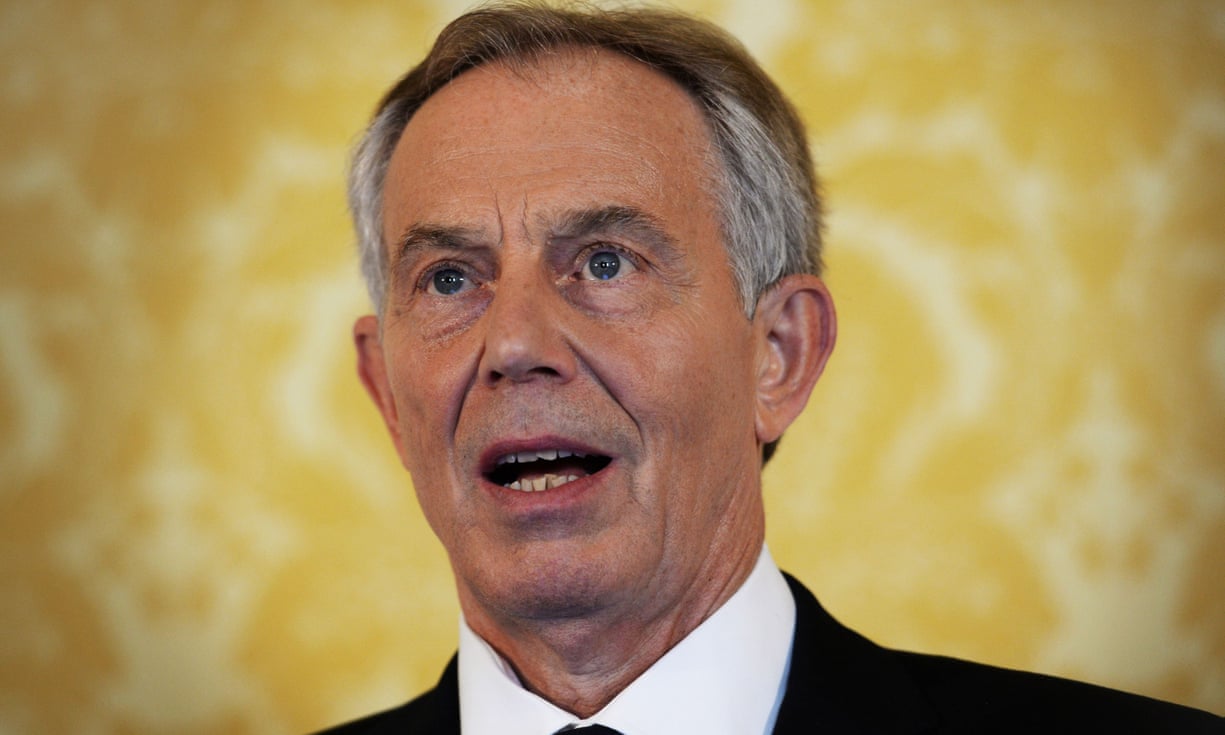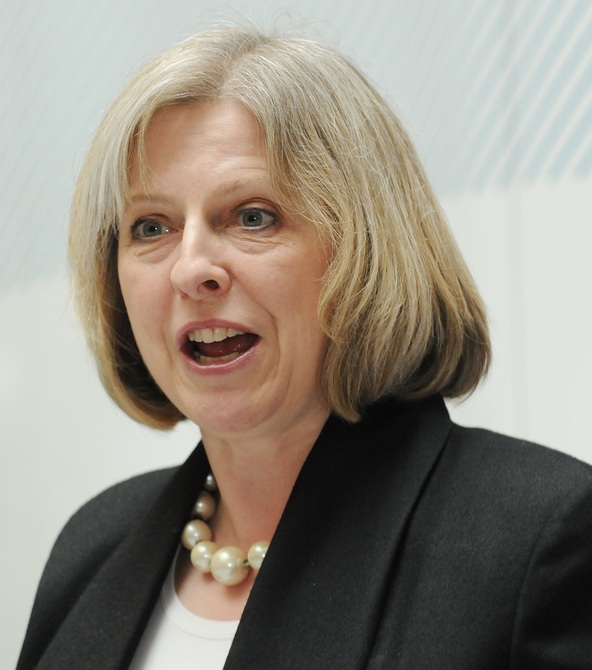 |
| Tony Blair. Image source: The Guardian |
This week, Tony Blair called for supporters of the European Union to mobilise against Brexit:
[Blair] said those who believed in the EU "have to recognise we're the insurgents now ... We have to build the capability to mobilise and to organise. We have to prise apart the alliance which gave us Brexit."
He suggested that, given a general election or second referendum, the results of the referendum on 23 June could be reversed:
"If it becomes clear that this is either a deal that doesn't make it worth our while leaving, or alternatively a deal that's going to be so serious in its implications people may decide they don't want to go, there's got to be some way, either through Parliament, or an election, or possibly through another referendum, in which people express their view."
Blair does have a point. Brexit has not yet passed the point of no return, and it's increasingly clear that it is likely to do grievous harm to the UK economy. It would be prudent to put on the brakes, and reconsider whether we really have to do this.
The trouble is, Blair doesn't seem to grasp how far his credibility has been ruined. Between the Iraq War and his unseemly money-grubbing after leaving office, Blair's stature has become negative. His endorsement of a cause actively harms it. If he loves the UK and wants to help it, I think he would be best advised to take a vow of silence.
Leaving aside the qualities of the messenger, I must confess I'm not very optimistic about the chances of averting Brexit.
Who is available to lead an anti-Brexit campaign? Blair, as previously noted, is worse than useless. There are plenty of other retired or semi-retired grandees, from Gordon Brown to Ken Clarke to Vince Cable, but there are good reasons why they are out of front-line politics. I don't think they have it in them to mobilise an insurgency, even a decorous and well-mannered British one.
Among active politicians, Labour is consumed by internal divisions, and the leadership is ambivalent on Europe at best. The SNP is playing its own game; it hopes to parlay the disruption of Brexit into independence for Scotland, and has no particular interest in repairing damage done to the UK. The Liberal Democrats are doing their best; but after their near-wipeout in the 2015 election, they lack the numbers or authority to make their voices heard.
As for the Conservatives, they have long been a party that puts power first and principles second. Last year, they won a parliamentary majority for the first time in 23 years; but it was a majority of only 12 seats, gained on a feeble 37% of the vote. Their mandate to govern was shaky at best.
Now, the Tories scent something bigger and better: A landslide victory in 2020, securing a decade or more of unfettered power.
Parliamentary boundary changes will work to the Tories' advantage. The Labour party is weak and divided, as is UKIP. In a recent poll, the Conservatives held an 18 point lead over Labour, of 47% to 29%. Under the first-past-the-post electoral system, this is more than enough to give the Tories a stupendous parliamentary majority.
To secure this prize, all the Tories have to do is remain united and hold on until 2020, when the new parliamentary boundaries will be in effect. There are plenty of Conservatives who campaigned to remain in the EU, with varying degrees of enthusiasm; but they remember the long years in opposition and coalition. The party line supports Brexit, and they are not going to rebel now. Conversely, a substantial minority of Conservatives will fight with everything they have to secure Brexit. They would willingly break the Conservative party to do so, and everyone knows it.
 |
| Theresa May. Image Source: Wikimedia Commons |
Theresa May attempts to remain inscrutable, but I think her objectives are simple enough:
- Remain in power by winning a landslide in 2020;
- Avoid economic meltdown, insofar as it is compatible with objective (1).
The Prime Minister has a narrow line to walk. The first objective requires party unity, and the only possible way to achieve that is an unequivocal commitment to Brexit. The second requires productive trading relationships with the EU; protection for industries dependent on the European market, such as banking and car manufacture; and openness to European labour, where it is essential for the functioning of the economy.
May will try to square this circle by delivering something that can plausibly be called Brexit, including controls on immigration. At the same time, she will trim, fudge, and compromise wherever possible to minimise the economic damage. We are already seeing this with Nissan's decision to keep production in the UK, which depended on unspecified but presumably strong assurances from the British government.
It's a dispiriting prospect. About the best that can be said for it is, it's better than a headlong rush to leave the EU without heed of the consequences.
It may be that some massive shift in public opinion will compel May to change course, but I don't see it happening. Unfortunately, she has another three and a half years before she has to call a general election, which is more than enough time for the formal completion of Brexit.
At a moment of historic weakness for Labour and the Liberal Democrats, the Conservatives see an opportunity and are prepared to take it. It amounts to a perfect storm in favour of Brexit. We are left to hope that not too many of our homes and livelihoods will be swept away.
No comments:
Post a Comment